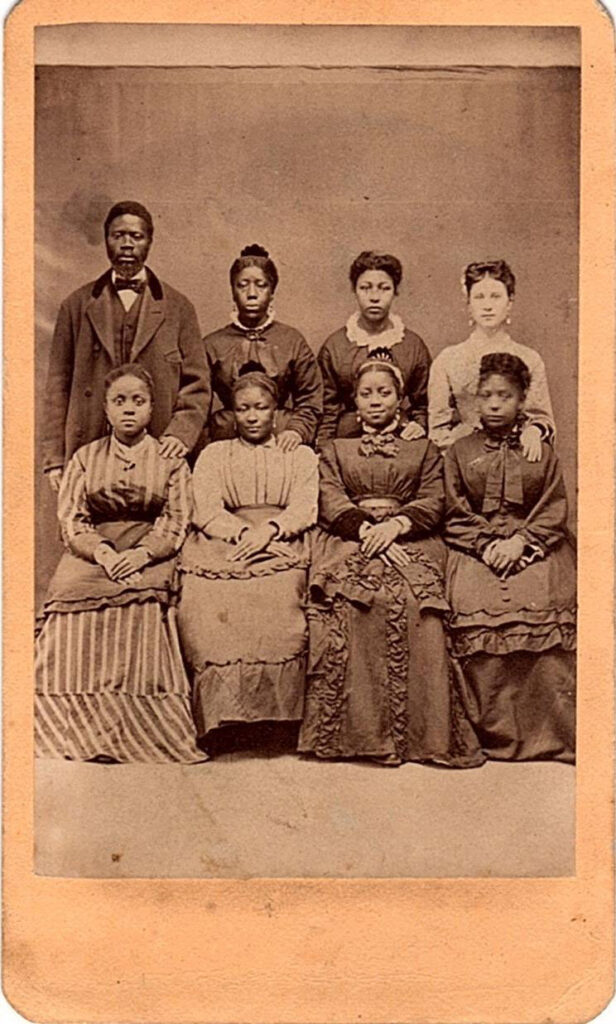Section #19 - Regional violence ends in Kansas as a “Free State” Constitution banning all black residents passes
Chapter 231: A Slave State Designation For Kansas Ends When Voters Reject The “English Bill”
August 2, 1858
The End Arrives For The Pro-Slavery Lecompton Constitution

The Second of August 1858 marks a major turning point in the history of the Kansas Territory.
For almost four years the will of the territory’s residents on slavery has been dictated by a sequence of electoral frauds carried out by the Missouri Border Ruffians. These begin in November 1854 with polling to choose the first representative to Congress. They continue with the rigged election of the so-called “bogus legislature” in March 1855, which hands control over to its pro-slavery members to draft a state constitution.
The result of their work is the Lecompton document, written in December 1857 and sent to Congress for admission to the union. It designates Kansas as a Slave State.
Over the next five months, James Buchanan and his Southern supporters try every tactic they can think of to force members of the U.S. House to approve Lecompton. They do so even though it has never been voted upon by the public, a clear violation of the Democratic Party’s commitment to popular sovereignty.
When not only the Republicans, but also their own Senator Stephen Douglas, refuse to cave in, the Democrats attach the threatening “English Bill” to the body of the Lecompton Constitution, hoping that Kansans will support it rather than face an indefinite delay in achieving statehood and securing public domain acreage.
On August 2, 1858, residents of Kansas go to the polls to approve or reject the Lecompton Constitution.
The result is an overwhelming defeat for Buchanan and for the South.
Public Vote On Lecompton: August 2, 1858
| Votes | |
| For The Constitution + English Bill | 1,788 |
| Against The Constitution | 11,300 |
Summer 1858
The Kansas Defeat Devastates Buchanan, Douglas And The Democrat Party
When Kansas Governor James Denver resigns his post on September 1, 1858, it only adds to the string of set-backs for James Buchanan which will permanently undermine his presidency.
Chief among these is his refusal to acknowledge the obvious election frauds in Kansas and then try over and over to convince Congress to admit the state under the phony pro-slavery Lecompton Constitution.
But then comes failure to stem the financial panic; his feckless pardon of the Mormon insurrectionists; his repeated failures to listen to, and retain, his hand-picked Governors in Kansas, or to stop the open warfare there.
Some Key Set-Backs In Buchanan’s First 18 Months In office
| 1857 | |
| March 4 | Inauguration Day |
| March 6 | The Dred Scott ruling encounters resistance |
| March 20 | Governor Geary resigns |
| July 15 | Governor Walker declares Kansas in rebellion |
| August 24 | Ohio Bank collapse begins financial panic |
| October 5 | Free State Party wins official Kansas legislature |
| December 15 | Governor Walker resigns |
| December 18 | Douglas defies Buchanan support for Lecompton |
| 1858 | |
| April 6 | Controversial pardon given to the Mormons |
| May 19 | Massacre at Marais des Cygnes |
| August 2 | Kansas voters reject the English Bill |
| September 1 | Denver submits his resignation |
Buchanan’s defeats are also shared by the Democratic Party writ large.
The manipulations to pass the Lecompton Constitution make a mockery of the party’s long standing commitment to popular sovereignty as the only fair way to resolve the future of slavery.
In turn they force Stephen Douglas to speak out against a Democratic President, and in so doing to further the internal divide between the Southern and Northern factions in the party.
With the English Bill now dead and Kansas in the Free State column, the South turns its attention to trying to convert the Dred Scott decision into a Congress-approved law guaranteeing slave owners the right to bring their “property” into any of the new Territories and settle down in advance of admission to statehood.
Northerners meanwhile turn their eyes toward the Illinois senate race and the debates between Douglas and his Republican adversary, Abraham Lincoln, which are sure to turn on the slavery issues.